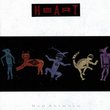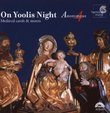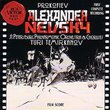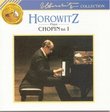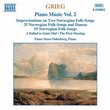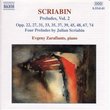| All Artists: Vincenzo Bellini, Roberto Abbado, Vesselina Kasarova, Ramon Vargas, Münchner Rundfunksorchester, Chor der Bayerichen Rundfunk, Umberto Chiummo, Simone Alberghini, Eva Mei Title: Bellini - I Capuleti e i Montecchi / Kasarova · Mei · Vargas · Chiummo · Alberghini · R. Abbado Members Wishing: 0 Total Copies: 0 Label: Sony Classics Release Date: 8/11/1998 Album Type: Box set Genre: Classical Style: Opera & Classical Vocal Number of Discs: 3 SwapaCD Credits: 3 UPC: 090266889921 |
Search - Vincenzo Bellini, Roberto Abbado, Vesselina Kasarova :: Bellini - I Capuleti e i Montecchi / Kasarova · Mei · Vargas · Chiummo · Alberghini · R. Abbado
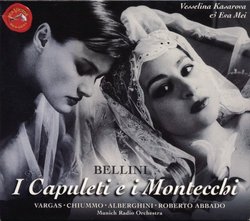 | Vincenzo Bellini, Roberto Abbado, Vesselina Kasarova Bellini - I Capuleti e i Montecchi / Kasarova · Mei · Vargas · Chiummo · Alberghini · R. Abbado Genre: Classical
While many of his contemporaries had reduced opera to empty displays of vocal prowess, Bellini crafted the gorgeous melodies of bel canto style with a poet's intuition for character and dramatic truth. This recording gives... more » |
Larger Image |
CD DetailsSynopsis
Amazon.com's Best of 1998 While many of his contemporaries had reduced opera to empty displays of vocal prowess, Bellini crafted the gorgeous melodies of bel canto style with a poet's intuition for character and dramatic truth. This recording gives ample evidence of both qualities, above all in the tender, yearning, and almost unbearably poignant blend of Vesselina Kasarova and Eva Mei's voices as Romeo and Juliet, respectively. Roberto Abbado brings loving but unobtrusive authority to the score. Also included is a disc of scenes from a similar opera composed by Nicola Vaccai and long performed in place of Bellini's music--a fascinating vantage point from which to consider the latter's achievement. --Thomas May Similarly Requested CDs
|
CD ReviewsFINALLY ---- A GREAT RECORDING OF BELLINI'S "I CAPULETI" lesismore26 | Chicago, Illinois USA | 01/08/2000 (5 out of 5 stars) "Vincenzo Bellini's "I Capuleti e i Montecchi" is far less well known than his "Norma", "I Puritani", or "La Sonnambula", but it deserves to be heard much more frequently. The opera, of course, is Bellini's scoring of the Romeo and Juliet tragedy, but with a "trouser" mezzo soprano for the role of Romeo (the opera, however, has occasionally been done with a tenor Romeo, but, incredibly enough, with considerably less musical effect). If one can get past this (which a few may find a little difficult), they will discover what a lyrically beautiful opera "I Capuleti e i Montecchi" actually is. Bellini, the master of "bel canto melody", wrote for this opera some of the most moving and beautiful vocal music ever conceived for the singing voice. "Capuletti" has been recorded before (Beverly Sills and Janet Baker on EMI in 1976; Edita Gruberova and Agnes Baltsa, also on EMI in 1983), but never has it received a recording on the level of this one. Eva Mei, one of the most accomplished sopranos of recent years, is an exquisite Juliet. Her lyric soprano sound is ideal for the role, bringing out all of the fragility and pathos of the character. Vesselina Kasarova, I believe, is destined to be one of the great operatic artists of the new millenium. She uses her magnificent mezzo soprano like a master cellist, producing sounds that can only inspire superlatives. Each singer not only excells in their respective arias, but they reach mammoth heights in their duets. This is truly great singing ---- and as a bonus, we get to hear the recently up-and-coming tenor Ramon Vargas in the supporting role of Tebaldo. Robert Abbado conducts this beautiful opera as though he were discovering it for the first time ----- it comes off as a fresh and beautiful presentation, infinitely superior to the most immediately recent 1983 EMI recording. As is essential for this particular opera (or for most operas of the bel canto period), he allows his singers to sing ----- and they do some sublime singing. If you want to discover this opera, this is definitely the recording to do it with. If you already own one or both of the previous EMI versions, you need this one too. It's a jewel of a presentation all around." Bel Canto with Style and Substance! lesismore26 | 07/19/2000 (5 out of 5 stars) "To me Bellini's operas have the grandeur and magistry of Beethoven's symphonies. They are stately, very beautiful, and carry the listener off into a wonderful world of sound, action and drama. This performance succeeds on so many levels. Next to Norma, this is my favorite Bellini opera. The libretto by Felice Romani, Bellini's favorite collaborator, is a masterpiece in it's way as much as Shakespeare's is in his (they are both based on similar sources of the Romeo and Juliet story). Both the music and the drama of this opera are compelling! Roberto Abbado conducts the orchestra with precision, elan, and transparent clarity. He never intrudes on the singers, but the grandeur of the music both preceeds and continues in the wake of the singers. Eva Mei has an indescribally beautiful voice (soprano). Her arias are a wonder! She can sing in the highest register with amazing control of pitch and dynamics. Vesselina Kasarova (mezzo) portrays Romeo very insightfully and her singing is gorgeous! My worry before I purchased this CD set was that the music might be beautiful in the bel canto style B.C. (Before Callas). This worry proved not to be founded. Kasarova and Mei definitely project drama and emotion into their artful singing, so that they are able to sweep the listener into the heart of this great tragic opera. In fact, their duet "Vieni,ah!in me riposa" has the force, beauty and drive of Callas and Stignani in Norma (1954,1955). And, of course, Roberto Vargas is another reason to own this magnificient recording. Bravo! Bravo! Bravo!" Beautiful like an erupting volcano Jacques COULARDEAU | OLLIERGUES France | 05/21/2001 (5 out of 5 stars) "This opera by Bellini is rather unknown. Luckily, a recent production at the Los Angeles Opera has put is in the limelights, though the absence of a video or DVD recording is definitely a handicap for the audience, because this opera is absolutely fabulous. At first I was surprised by the choice of a soprano for Romeo. But The opera is built to use this fact at the highest level possible. The duets between Romeo and Juliet come to a perfect blending of the voices, the couple becoming one, and that is a marvelous way of expressing this total and unbreakable love that unifies them two. But the duets between Romeo and Tybalt are also enhanced by this fact because then we have the rivalry between the two characters expressed by the opposition between the soprano and the tenor.Bellini slightly betrays Shakespeare. Romeo is the real head of the fighting Montagues, and Tybalt is the same on the Capulet side. Romeo has killed Juliet's brother. Yet Romeo and Juliet are deeply in love, but Tybalt is also deeply un love with Juliet, though she does not respond to this love. The rivalry between the two families is thus reduced and at the same time multiplied because of the two men who love the same woman. The dramatic tension is strengthened by this simple fact. We are no longer in a fight between two families, but between two lovers. The feelings and sentiments are thus extremely more powerful. And then we understand the choice of a soprano for Romeo. Tybalt is the one who is trying to break, unknowingly at first, the love between Romeo and Juliet.The music is very surprising in some pieces. The use of brass instruments at the beginning or here and there does not evoke a war, but rather a hunting party. Yet in the love scenes, the really dramatic scenes in the opera, the music gets to either a tremendous delicacy to express the beauty of the feelings (the use of a guitar for instance) or a phenomenal tension. The singing itself is as pure and multifarious as the tortured and split loyalties of Romeo or Juliet, especially Juliet, or Tybalt require. Pure because of the voices, because of the solos, but also because of the very precise and accurate composition of the duets or the chorus. Multifarious because no two scenes have the same coloration. We feel the evolution of the drama, of the questioning in the minds and hearts of the characters due to these slight changes in the music from one scene to the next. An expert would probably hear now and then an echo of Mozart or some other great opera composers, but it is only an evanescent echo when it happens, a couple or very small number of notes, or even nothing but a tone, a chord that sounds like coming from somewhere else, but it is so well blended in the whole that it sounds just perfect, not one note too many, not one variation too many, just the right number of notes and words, just perfect. So the death of Romeo and Juliet becomes all the more volcanic, heavy and fiery, because of those changes in the plot and because of those perfect notes and arias. This opera deserves a better coverage in our musical culture.Dr Jacques COULARDEAU, Paris Universities II and IX."
|

 Track Listings (16) - Disc #1
Track Listings (16) - Disc #1